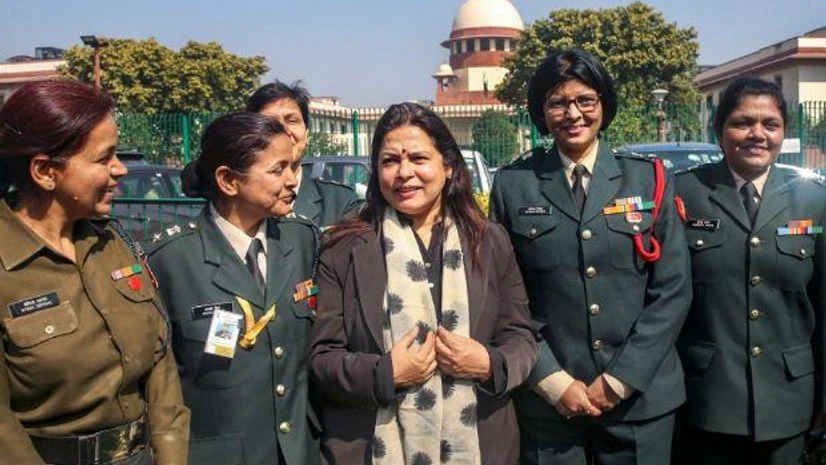Since 1992, when women were first inducted in the Indian Army, their quest for permanent commission has had a "chequered history" of 28 years including over a decade-long litigation which ended on Monday with the Supreme Court's landmark ruling granting them parity with their male counterparts.
A bench of Justices D Y Chandrachud and Ajay Rastogi directed the central government to grant permanent commissions to all women officers in the Army within three months, saying there will not be any absolute bar on giving them command postings.
While granting the relief to women officers, the bench noted that "the entry of women in the Army has a chequered history" from 1992, when they were inducted in stipulated branches and cadres for five years.
Initially, under the Army Act of 1950, women were ineligible for employment in the regular army except in such corps, departments or branches which the central government may specify by way of notifications.
Almost 42 years after the Act, the government issued a notification in January 1992 making women eligible for appointment as officers in five branches -- the Army Postal Service, Judge Advocate General's (JAG) department, Army Education Corps (AEC), Army Ordinance Corps (Central Ammunition Depots and Material Management) and Army Service Corps (Food Scientists and Catering Officers).
In December of the same year, women could be employed in five more departments -- Signals, Intelligence, Engineering, Electrical and Mechanical Engineering and Artillery Regiment.
More From This Section

Four years later in December 1996, the five-year cap on enrolment was removed by way of a notification and subsequently, in 2005, the tenure of female officers inducted under the Women Special Entry Scheme (WSES) in 1992, 1993 and 1996 was extended by another five years from 1997.
Under the 2005 notification, the tenure of Short Service Commission (SSC) male officers and WSES officers was extended up to 14 years and substantive promotions were to be extended to both male and female SSC officers as applicable to Permanent Commission (PC) officers.
However, the terms of engagement governing appointment under the WSES, or later under the SSC, never provided for the offer of permanent commission to women, even though their service tenures were increased from the initial period of five years to a maximum of 14 years.
In February 2003, a plea was moved in the Delhi High Court for grant of PC to women SSC officers in the Army.
Thereafter, in October 2006 a plea was filed for grant of PC to women officers.
In September 2008, the Defence Ministry issued a circular envisaging grant of PC prospectively to SSC women officers in the JAG department and the AEC.
This circular was also challenged in the Delhi High Court by some women officers on the ground that it granted PC prospectively and only to certain specified cadres.
The high court, in March 2010, directed the government to offer PC to women officers in the Army who were recruited prior to the policy decision to not offer PC to both men and women SSC officers.
The high court's decision was challenged by the central government in the apex court.
(Only the headline and picture of this report may have been reworked by the Business Standard staff; the rest of the content is auto-generated from a syndicated feed.)

)
